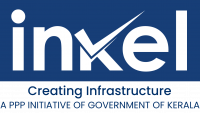
In the world of Engineering, Procurement, and Construction (EPC) projects, achieving success hinges on a delicate balance – delivering exceptional quality within a set budget. Here’s the truth: cutting corners to save money can backfire spectacularly. Conversely, overspending can cripple project viability. So, how do we navigate this tightrope walk? Inkel Limited, the EPC Solutions Provider in Kerala delves into strategies that promote cost-efficiency in EPC projects, ensuring both quality and financial triumph.
The magic formula for cost-efficiency starts with meticulous planning. A 2020 study by McKinsey & Company found that projects with well-defined upfront planning experienced a staggering 15% reduction in costs. This translates to significant savings! So, what does effective planning look like? Let’s have a look
Think of it as the blueprint for your project. It’s a comprehensive document that outlines exactly what needs to be done to achieve your desired outcome. This includes:
Project Goals: Clearly define the overall objectives you aim to achieve. What problem are you solving or what opportunity are you capitalizing on?
Deliverables: Outline the tangible outputs of your project. This could be a physical product, a software program, a completed service, or a specific outcome. Be as specific as possible.
Features & Functionality: For projects with deliverables that have specific features or functionalities, detail them out clearly. This avoids confusion later on about what’s included and what’s not.
Exclusions: Just as important as what’s included is what’s not included in the project scope. Clearly define any functionalities, features, or tasks that are outside the project’s boundaries.
Acceptance Criteria: Define the specific standards that a deliverable must meet to be considered complete and successful. This helps avoid ambiguity and ensures everyone is on the same page about what “done” looks like.
So, you might think, why spend all this time meticulously defining your scope? Here’s the real magic:
Reduces Change Orders: When the scope is clear and well-defined, there’s less room for misunderstandings. This minimizes the need for change orders, which are essentially additional requests for work outside the original scope. These often come with additional costs, derailing your budget and timeline.
Improved Communication: A detailed scope serves as a communication cornerstone. All stakeholders, from project managers to developers, understand their roles and responsibilities, fostering smoother collaboration and avoiding confusion.
Manages Expectations: By setting clear expectations for deliverables, you avoid disappointing clients or team members who may have had a different understanding of the project’s outcome. A detailed scope keeps everyone on the same page.
Accurate Cost Estimation: With a well-defined scope, you can get a much more accurate picture of potential project costs. You’ll be able to factor in all the necessary resources (materials, labor, etc.) needed to achieve the deliverables, leading to a more realistic budget.
Value Engineering: Analyze project aspects to identify areas for cost optimization without compromising quality. Can you use a standard material instead of a custom one?
Detailed scope definition is the foundation for a successful project. By investing time upfront to clearly define your project goals and deliverables, you will be well on your way to conquering project challenges, staying within budget, and achieving the desired outcome.
In the world of business, procurement is more than just buying things. It’s a strategic function that plays a critical role in cost management. Here’s how you can transform yourself from a passive buyer into a procurement pro who consistently delivers value
Imagine buying a car without checking prices at other dealerships. That’s essentially what happens when you don’t leverage competitive bidding. As a procurement pro, you should cultivate relationships with multiple qualified vendors. This allows you to:
Spark Competition: By soliciting bids from several vendors, you create a competitive environment. This naturally drives down prices as vendors vie for your business with the most attractive offers.
Compare Pricing and Quality: With multiple bids in hand, you can meticulously compare pricing structures against the quality of proposed goods or services.
Negotiate from a Position of Strength: Knowing you have alternative options empowers you to negotiate more favorable terms, such as better pricing, payment options, or faster delivery times.
Need a large quantity of materials? Bulk purchases can be your secret weapon for significant cost savings. As a procurement pro, you should be adept at:
Identifying Opportunities: Scan your supply chain and identify materials with long shelf lives, such as office supplies, steel, or concrete.
Negotiating Bulk Discounts: Approach your preferred vendors and leverage the potential for increased volume purchases. Negotiate bulk discounts that significantly reduce the cost per unit compared to smaller orders.
Inventory Management: While bulk purchases offer savings, it is crucial to strike a balance. Develop a sound inventory management system to ensure adequate stock without incurring unnecessary storage costs.
Think of a well-oiled machine. Standardization is to procurement what smooth gears are to machinery. As a procurement pro, you should strive for:
Standardized Materials and Equipment: Whenever possible, use standardized materials and equipment across your operations. This simplifies the procurement process, eliminates the need to source multiple variations, and potentially reduces costs due to economies of scale.
Streamlined Logistics: Standardization simplifies logistics. You will have a clear understanding of your ongoing material and equipment needs, making it easier to predict transportation requirements and negotiate favorable shipping rates.
Reduced Training Costs: When equipment and materials are standardized, training becomes more efficient. Employees only need to learn one system, saving time and resources on training diverse procedures for various tools or materials.
By mastering these procurement strategies, you will be well on your way to becoming a procurement pro. Remember, procurement isn’t just about buying things; it’s about acquiring the right things at the right price, contributing to a lean and cost-effective operation.
A skilled project manager is worth their weight in gold. Here’s how they ensure cost-efficiency:
Schedule Optimization: Develop a realistic and efficient construction schedule to minimize delays, which can lead to cost overruns due to idle labor and equipment.
Change Order Control: Implement a robust change order management system to meticulously track and approve any project modifications that impact budget or schedule.
Risk Management: Proactively identify and mitigate potential risks that could derail costs. Unexpected events happen, but effective risk management lessens their financial blow.
Investing in Quality
Remember, skimping on quality today can lead to bigger problems – and costs – down the road.
Reduced rework: Faulty construction necessitates rework, a significant cost drain.
Durability and longevity: High-quality materials and construction practices lead to a more durable and long-lasting project, minimizing future maintenance expenses.
Safety first: Cutting corners on safety can result in accidents with devastating consequences, both human and financial.
Cost efficiency in EPC projects isn’t about cutting corners; it’s about optimizing resources and processes to achieve the best possible value. By implementing these strategies, we at Inkel Limited, the EPC Solutions Provider in Kerala, ensures exceptional project delivery that meets both quality and budget expectations. Remember, a successful EPC project is a well-orchestrated symphony where every element – planning, procurement, project management, and a commitment to quality – works in perfect harmony.
In the world of Engineering, Procurement, and Construction (EPC) projects, achieving success hinges on a delicate balance – delivering exceptional quality within a set budget. Here’s the truth: cutting corners to save money can backfire spectacularly. Conversely, overspending can cripple project viability. So, how do we navigate this tightrope walk? Inkel Limited, the EPC Solutions Provider in Kerala delves into strategies that promote cost-efficiency in EPC projects, ensuring both quality and financial triumph.
The magic formula for cost-efficiency starts with meticulous planning. A 2020 study by McKinsey & Company found that projects with well-defined upfront planning experienced a staggering 15% reduction in costs. This translates to significant savings! So, what does effective planning look like? Let’s have a look
Detailed Scope Definition:
Think of it as the blueprint for your project. It’s a comprehensive document that outlines exactly what needs to be done to achieve your desired outcome. This includes:
Now, Why is Detailed Scope Definition Important?
So, you might think, why spend all this time meticulously defining your scope? Here’s the real magic:
Detailed scope definition is the foundation for a successful project. By investing time upfront to clearly define your project goals and deliverables, you will be well on your way to conquering project challenges, staying within budget, and achieving the desired outcome.
In the world of business, procurement is more than just buying things. It’s a strategic function that plays a critical role in cost management. Here’s how you can transform yourself from a passive buyer into a procurement pro who consistently delivers value
1. Competitive Bidding
Imagine buying a car without checking prices at other dealerships. That’s essentially what happens when you don’t leverage competitive bidding. As a procurement pro, you should cultivate relationships with multiple qualified vendors. This allows you to:
Spark Competition: By soliciting bids from several vendors, you create a competitive environment. This naturally drives down prices as vendors vie for your business with the most attractive offers.
Compare Pricing and Quality: With multiple bids in hand, you can meticulously compare pricing structures against the quality of proposed goods or services.
Negotiate from a Position of Strength: Knowing you have alternative options empowers you to negotiate more favorable terms, such as better pricing, payment options, or faster delivery times.
2. Negotiating Power of Volume
Need a large quantity of materials? Bulk purchases can be your secret weapon for significant cost savings. As a procurement pro, you should be adept at:
Identifying Opportunities: Scan your supply chain and identify materials with long shelf lives, such as office supplies, steel, or concrete.
Negotiating Bulk Discounts: Approach your preferred vendors and leverage the potential for increased volume purchases. Negotiate bulk discounts that significantly reduce the cost per unit compared to smaller orders.
Inventory Management: While bulk purchases offer savings, it is crucial to strike a balance. Develop a sound inventory management system to ensure adequate stock without incurring unnecessary storage costs.
3. Standardization
Think of a well-oiled machine. Standardization is to procurement what smooth gears are to machinery. As a procurement pro, you should strive for:
Standardized Materials and Equipment: Whenever possible, use standardized materials and equipment across your operations. This simplifies the procurement process, eliminates the need to source multiple variations, and potentially reduces costs due to economies of scale.
Streamlined Logistics: Standardization simplifies logistics. You will have a clear understanding of your ongoing material and equipment needs, making it easier to predict transportation requirements and negotiate favorable shipping rates.
Reduced Training Costs: When equipment and materials are standardized, training becomes more efficient. Employees only need to learn one system, saving time and resources on training diverse procedures for various tools or materials.
By mastering these procurement strategies, you will be well on your way to becoming a procurement pro. Remember, procurement isn’t just about buying things; it’s about acquiring the right things at the right price, contributing to a lean and cost-effective operation.
A skilled project manager is worth their weight in gold. Here’s how they ensure cost-efficiency:
Remember, skimping on quality today can lead to bigger problems – and costs – down the road.
Here’s why quality matters:
Cost efficiency in EPC projects isn’t about cutting corners; it’s about optimizing resources and processes to achieve the best possible value. By implementing these strategies, we at Inkel Limited, the EPC Solutions Provider in Kerala, ensures exceptional project delivery that meets both quality and budget expectations. Remember, a successful EPC project is a well-orchestrated symphony where every element – planning, procurement, project management, and a commitment to quality – works in perfect harmony.

+91 484-2978101 (09:30 AM – 5:30 PM)
Designed by